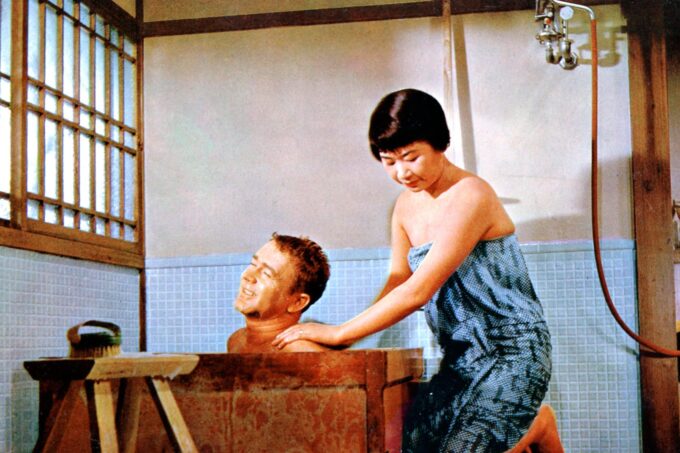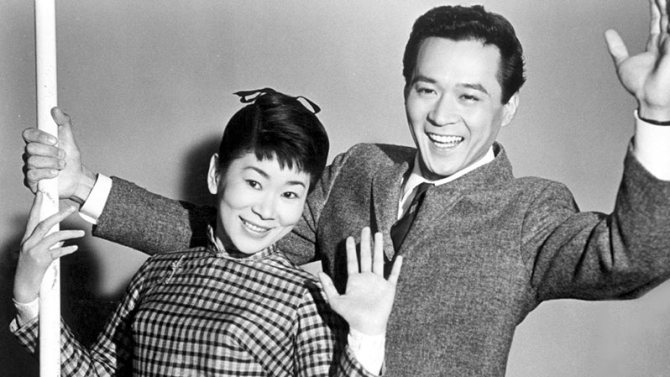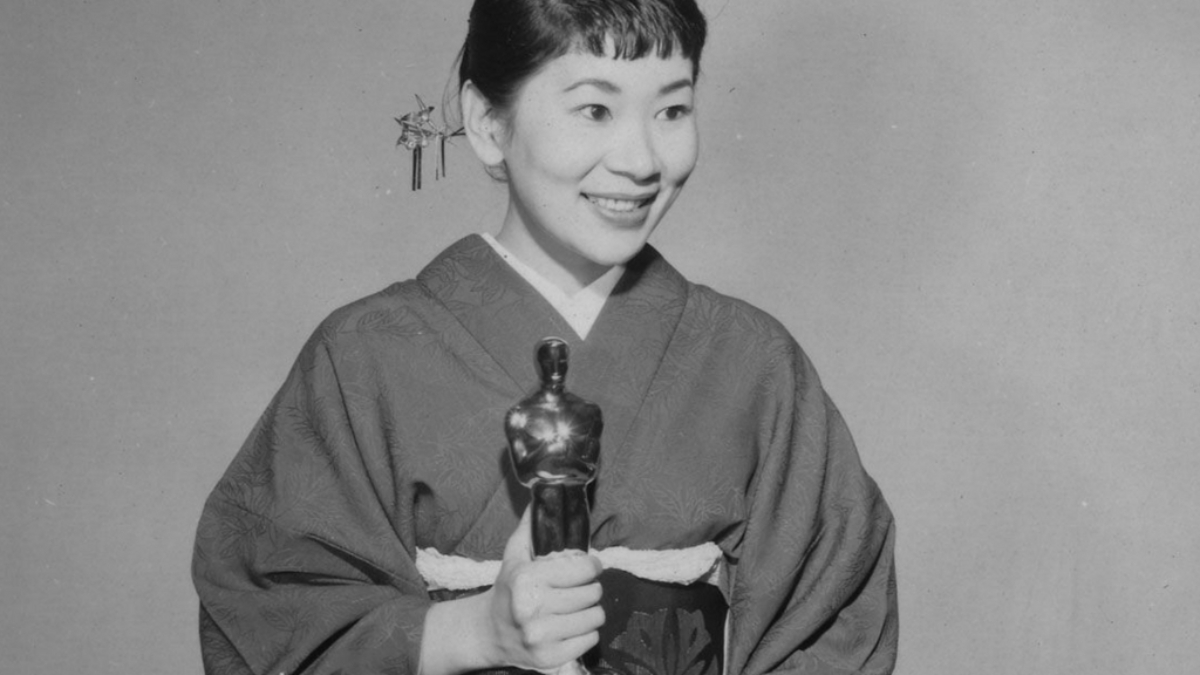For this Asian Pacific American Heritage Month, we are looking back at Miyoshi Umeki’s legacy as the only Asian actress to win an Academy Award.
Written By: Nathan Liu
Miyoshi Umeki. You’ve probably never heard of her, but on March 26, 1958, she made history when she became the first, and, as of this writing, only Asian actress to win an Oscar. The fact that she did in a year when segregation was very much still legal is nothing short of astonishing. It should easily earn her entertainment icon status. And yet, in the six decades since her victory, she’s more or less been erased from the public memory. I never learned about her in film school. There are no official biographies. It’s as though everyone tried to forget she even existed.
Now you might be thinking, so what? Why should I care about an actress from sixty years ago? Isn’t her story insignificant in the grand scheme of things? Maybe. After all, movies and actors don’t win wars, cure diseases, or rid the world of poverty. But Miyoshi’s case is worth studying as a classic example of Asian American erasure; of us being made invisible in the narrative of this country.
Growing up part Chinese, I never saw people like me onscreen. Nor did I learn about them in school. We heard about Jackie Robinson breaking the color barrier in baseball, but never discussed Bobby Balcena becoming the MLB’s first Asian player. Teachers regaled us with accounts of Bessie Coleman’s daring flights, but never with those of Hazel Ying Lee. My professors stressed the significance of Hattie McDaniel as the first Black woman to win an Oscar, but, as stated earlier, never thought to mention Miyoshi as the first Asian woman to do so. And I never thought to ask why.
Why are some trailblazers worth remembering, and some worth forgetting? It’s an important question to ask because when you fail to see yourself represented anywhere — either in entertainment or history books — you start to feel insignificant. You feel like you don’t matter, and that there’s no point in even trying to achieve anything because society will just ignore your efforts. Studying Miyoshi Umeki could change that notion, though. She is proof to all Asian women hustling as actors that they can achieve the highest levels of success in the entertainment industry. On top of this, modern filmmakers and studios should use her story as a case study in how NOT to utilize talented Asian performers.

Throughout her tragically short career — she only made five movies in Hollywood — Miyoshi was the victim of typecasting. On both the big and small screen, Miyoshi portrayed sweet, submissive butterflies that spoke broken English, and eagerly doted on white people. Her incredible acting abilities, and remarkable singing voice, were wasted on one-note stereotypes. And, sadly, things have not improved much since her retirement in 1972.
In 2007, Japanese actress Rinko Kikuchi earned an Oscar nomination for her role as a troubled deaf girl in the ensemble drama “Babel.” Unfortunately, this honor did nothing to boost her profile. Hollywood studios rarely thought to use her unless they were explicitly making films about Japan. When she finally appeared in a big-budget American movie again, with 2013’s “Pacific Rim,” several critics, like the hosts of Spill.com and the writers of Honest Trailers, didn’t recognize her, and made racist jokes about her name and accent. To add insult to injury, a few years after “Pacific Rim,” Hollywood decided to make a big-budget adaptation of “Ghost In The Shell” — a Japanese sci-fi manga with a female lead — and they didn’t even consider Rinko for the part. Instead, they cast Scarlet Johansen.
Yes, things have gotten better for Asian people in Hollywood. Films with Asian leads, like “Crazy Rich Asians” and “Searching,” have become box office hits. Movies exploring Asian American identity, such as “The Farewell” and “Gook,” have earned critical acclaim. But there is still a long way to go. Even now, Asian people only play 1% of leading roles in Hollywood movies. The fact that, in the Oscars’ 92-year history, only one Asian woman has ever won an acting award is proof that we are all-but-invisible in mainstream entertainment. That’s why we should remember and celebrate Miyoshi Umeki in both history and film classes. Her success should act as a source of aspiration for young Asian artists hoping to work in entertainment. But most of all, we should remember her so that neither she nor any other Asian person feels invisible.


